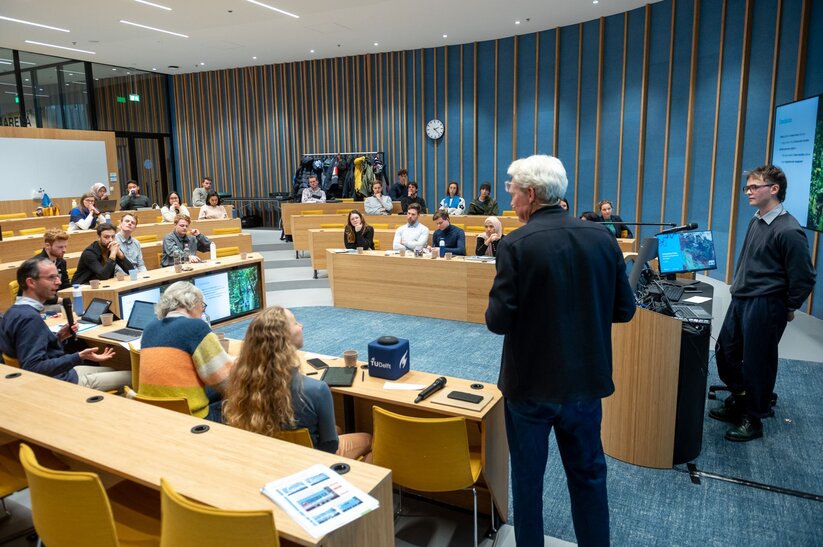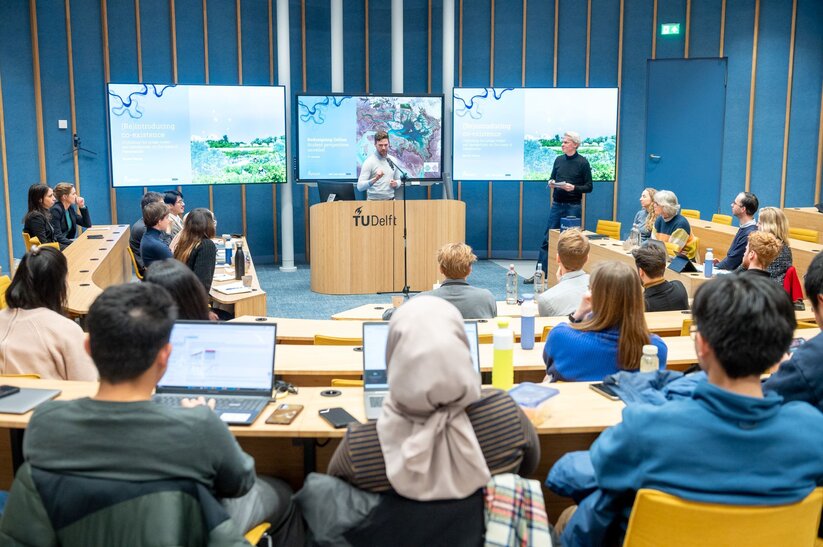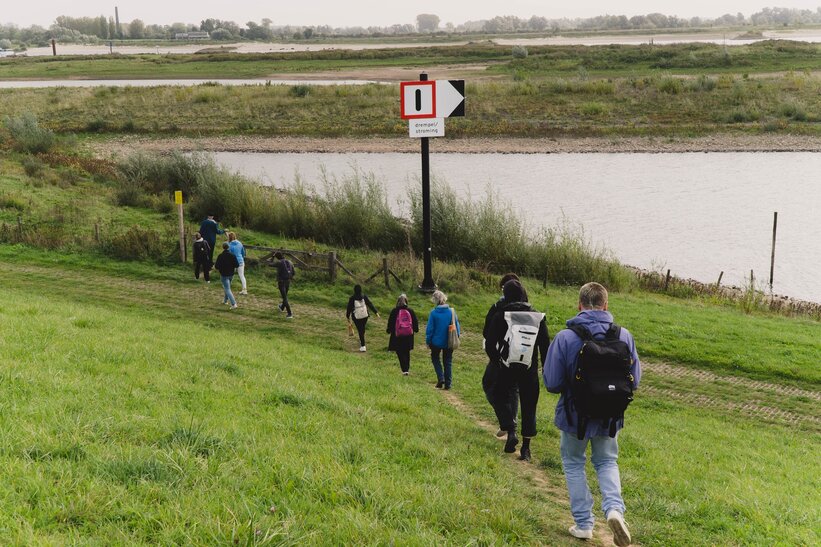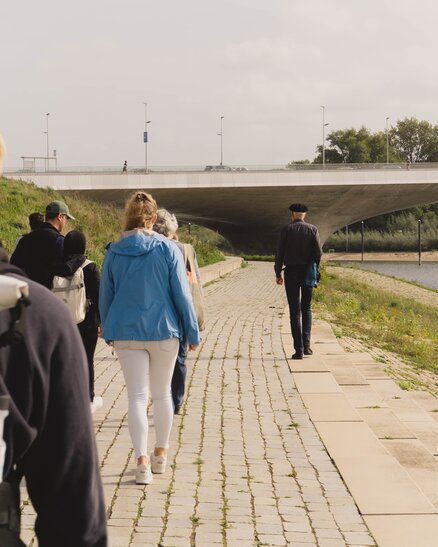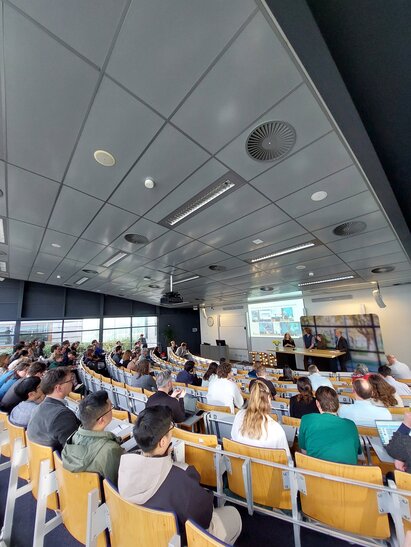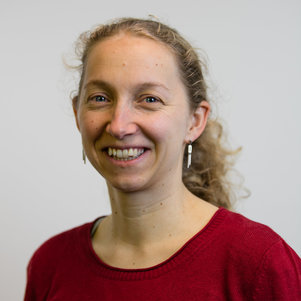Water and Delta Systems
Water is vital for life, water problems are everywhere and especially urgent in urbanizing deltas. Learn how to tackle these challenges and prepare for a job market where you can make a real difference. This electives package equips you with the skills and knowledge to address pressing water and delta problems worldwide like flooding, drought, access to clean water and sanitation, sea-level rise and land subsidence, ecosystem and environmental degradation. This program prepares you to face these challenges through institutional and governance design, water and delta management, policy analysis, water ethics and justice, advanced water and delta modelling, system design and strategic management for water issues.
Why Choose This Elective Package?
There is a high demand in the public and private sectors and by for-profit as well as non-profit organizations for professionals who are able to combine TPM skills with water and delta system knowledge. These relate, for example, to societal sustainability transitions at large, climate and biodiversity risks and conservation, the circular and blue economy, sustainable technology and innovation, adaptive socio-eco-technical system design and beyond. Water is vital for life, yet our water systems are under increasing pressure due to socio-economic development and climate change.
Participation in courses of this electives package will expose you to key issues such as:
- Flooding and Drought: Understand and mitigate the impacts of extreme weather events.
- Access to Clean Water, Water Quality, and Public Health: Ensure safe drinking water and proper sanitation.
- Sea-Level Rise and Land Subsidence: Develop solutions to protect coastal and delta regions.
- Ecosystem, Biodiversity, and Environmental Degradation: Preserve and restore vital ecosystems.
- Water Ethics: Ensure equitable access, address competing interests, and implement long-term planning for sustainable water management in delta regions.
Our courses appeal to students who are passionate about sustainability through a water and delta systems lens at the crossing edge of society, science and technology. Exploring complex sustainability issues from the different angles, you will learn to better understand and address water- and environment-related challenges in the Netherlands and globally. Whether you aim to become a consultant, policy maker, analyst, designer, manager or operator of large sustainability or technical infrastructure projects, this program equips you with the skills and knowledge to succeed.
For whom?
This elective package is designed for 2nd-year MSc students from TPM (EPA, CoSEM, MoT) and open to students from other TU programs, such as IE, CME, TIL, EE, CE/Hydraulic Engineering and Water Resources, Urbanism, and others. It is your responsibility to acquire the required prior knowledge before the course starts. We invite students to reach out to the elective package coordinators to discuss if their prior knowledge is sufficient to take part.
Prior knowledge
All courses assume that you have a background in engineering, are familiar with systems analysis and systems thinking concepts, and are curious about water and delta systems. We assume a ‘growth mindset’ and support students who want to expand their horizon beyond their core background. The TPM802A and TPM026A courses require quantitative modeling skills. Consult the Study Guide for information on expected prior knowledge.
What will you learn?
Water and land are inextricably entwined. The sustainability of living in deltas depends on how we manage this relationship: every land decision is a water decision and vice versa. The courses in this electives package all address real world sustainability issues in water and delta systems and how these issues are interlinked.
The six courses, from their specific angle, support you in learning how to characterize ‘water in delta’ issues in their specific contexts and how to analyze the solution space. You gain insight in the complex and dynamic interplay of nature, technology and digitization, people, governance, politics, and economic interests. You learn why the sustainability issues in deltas are shifting. We are used to dealing with issues related to living with water (flood risk, subsidence) but these become more urgent, more severe. We need to learn how to deal with issues related to living without sufficient water (droughts) and within polluted and deteriorated ecosystems. You will learn why optimal solutions are not possible for these issues and how we can strive for satisficing solutions. You will develop a holistic, socio-technical-environmental perspective and sharpen your skillset for analyzing, designing for and managing complex water-related issues with a special consideration for delta’s.
You will learn or enhance skills that are widely sought after in the job market, namely the skill to integrate thinking from a technical, societal and managerial perspective. You learn to address problems in deltas with a holistic mindset rather than to reduce problems to the point where a purely technical solution seems possible. You learn how you can connect your specialist (technical) knowledge with new insight in how a socio-eco-technical system within a delta may behave over time, making use of theories of methods from:
- Policy Analysis and Design: Craft policies that balance societal, environmental, and economic needs.
- Quantitative Modeling: Use advanced modeling techniques to solve complex problems.
- Adaptive Planning for Sustainability and Resilience: Develop solutions to protect coastal and delta regions.
- Ethics and Values
TPM-students with an interest to gain more knowledge on wicked processes in spatial design, natural processes and technology related to water- and deltas may elect to follow courses offered by the faculties of Civil Engineering and Geosciences or Architecture and the Built Environment.
Transferrable Skills
The skills you acquire here can be applied to various fields in beyond water and delta systems, such as management and design of transportation, energy, or health systems.
Education methods
The education methods vary for each course. For detailed information, please refer to the study guide.
Overall, teachers strive to make the courses hands-on. Activities may include excursions, assignments, interviews with practitioners, online gaming and simulations, modeling, and critical appraisal and analysis. Assessment methods typically include individual or group assignments, as well as written exams.
Experiences
Our program offers hands-on experiences such as:
Labs, Centers and Initiative: Take part in activities of the HIPPO Lab, Delta Futures Lab, and more.
Excursions: Experience hands-on learning through excursions, including a bicycle tour in Delft focusing on urban water management and a Rhine River tour exploring floodplain configurations, water distribution, and flood prevention from the Germany-Netherlands border to Dordrecht.
Company Visits: Explore leading institutes and companies working on innovative solutions in the field of water and deltas, such as Deltares.
Dies Natalis 2024: As part of TU Delft's 182nd Dies Natalis in 2024 themed 'Redesigning Deltas', students pitch innovative solutions for climate resilience, governance, and sustainability in delta regions to an expert-led panel.we
TPM on Stage 2024: TPM researchers, students, and alumnas presents their work in making our Deltas more resilient in a Redesigning Deltas edition of TPM on Stage.
Student Stories
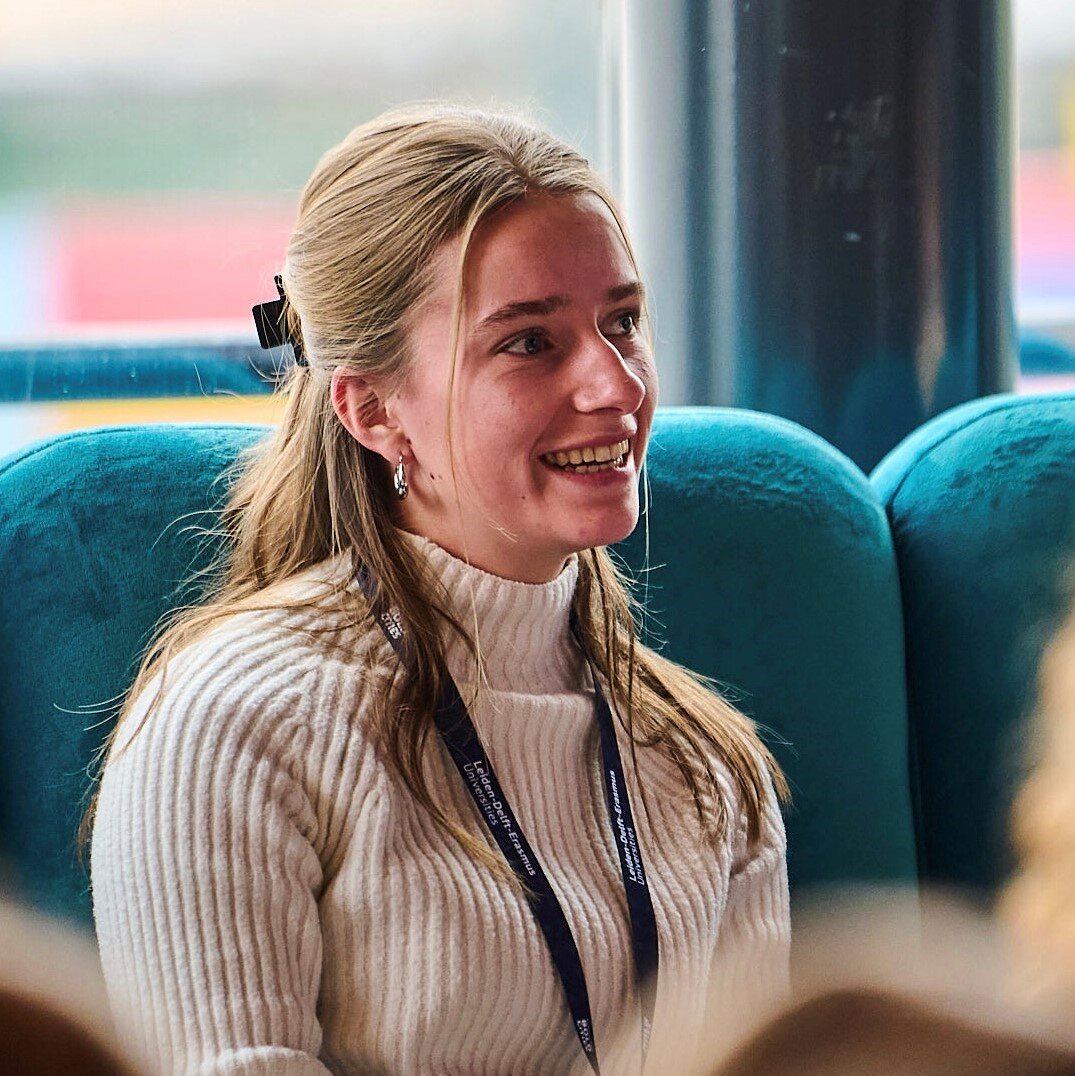
"The Water and Delta elective package provided me with a deep dive into the crucial and captivating field of water systems. The courses were exceptionally engaging, offering numerous opportunities to apply theoretical knowledge in practical scenarios. Through a series of exciting excursions and lectures tailored to our interests, I gained profound insights into the complexities of water and delta systems. This package not only expanded my understanding but also equipped me with a strategic mindset to anticipate and address future challenges facing our water systems.."
Sanne van Herwijnen is a Masters student of Complex Systems Engineering and Management.
"The complexity of water policies is inconmensurable. Every water decision spans from space planning to peace and geopolitics and every aspect of life in this planet. Falling short of tackling this complexity is dangerous. The Water and Delta package's comprehensive approach is as valuable as it is rare. Join in to rise to the challenge."
Ariel Goldin Marcovich is a Masters student of Engineering and Policy Analysis.

"As a CME student with an interest in water-related issues, the Water and Delta Program will be an excellent elective choice. It provides me with a holistic understanding of the intricate relationship between water and land in delta regions, enhancing my ability to integrate technical, societal, and managerial perspectives. This program helps me with the skills to analyse and design sustainable solutions for complex water-related challenges, which is essential for optimising construction projects and ensuring their success in dynamic and environmentally sensitive delta environments."
Tharina Nursalika Adhyati is a Masters student of Construction Management and Engineering.
Course overview
Note: All courses will be given in English.
Electives:
- TPM801a - Introduction to Water Governance in Deltas (5 ECTS, Q1)
- TPM802a - Model-based Assessment of Water Systems (5 ECTS, Q1)
- TPM026a - System Reliability in Quantitative Risk Assessment (4 ECTS, Q1)
- TPM803a - Building with Nature and Beyond (5 ECTS, Q1 or Q2) TPM003a - Water Ethics (5 ECTS, Q2)
- TPM804a - Adaptive Planning for Management of Water Systems (5 ECTS, Q2)
For course descriptions, please visit the study guide.
Thesis Topics
Participation in the electives prepares TPM students for theses on water- and sustainability-related topics and enables students from other faculties with prior water and delta-related knowledge to address topics that cross socio-eco-technical boundaries.
Examples of thesis topics conducted by water and delta systems students under TPM supervision:
- Risk-based sewer asset management – a practical implementation (2023, CEG CE-WM)
- Distribution of water during drought (2023, TPM CoSEM)
- More effective knowledge sharing of nature-based flood defense pilots: A knowledge base approach (2023, TPM MoT)
- Evaluating Stability of Adaptive Water Allocation Strategies in the Eastern Nile Basin (2023, TPM EPA)
- Stimulating Circular Design in Wastewater Engineering – Formulating Interventions via Behavioral Insights (2024, TPM EPA)
- Discourse Networks to understand the Environmental and Planning Act in the Netherlands (2024, TPM EPA)
Register for this elective
Please fill in your application in My Study Planning and enroll this elective package in Brightspace.
Contact details
In case of questions, please contact the coordinators Lisa Scholten and Tineke Ruijgh-van der Ploeg.
